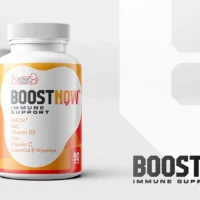Welcome to the fascinating world of our body’s defense mechanism: the immune system. Imagine a silent army, working round the clock, guarding the borders of a vast kingdom. This army doesn’t wear uniforms or carry weapons, but it’s one of the most efficient forces you’ll ever come across. That’s your immune system in a nutshell!
The immune system is our body’s natural shield against invaders. Whether it’s harmful bacteria sneaking in through a cut or a virus trying to take over when we inhale, our immune system is always on high alert. Its primary role? To distinguish between our body’s cells and unwanted guests, ensuring that we remain healthy and functioning at our best.
Did you know that without our immune system, even the common cold could be fatal? Or that it has a memory, remembering past invaders and ensuring they don’t cause trouble again? It’s like having an internal detective agency, always on the lookout, ensuring our safety.
But what happens when this system isn’t at its best? Dive in as we explore the causes, symptoms, and ways to bolster a weakened immune system. Your health might just depend on it!
Causes of a Weakened Immune System
Exploring the intricate pathways of our body’s defense against a weakened immune system is captivating. While it’s remarkable at its peak performance, several elements can diminish its potency. Let’s investigate the main factors that can challenge our immune system’s optimal functioning.
1. Lifestyle Factors
- Diet: Ever heard the saying, “You are what you eat”? It’s not just a catchy phrase. Consuming a diet low in fruits, vegetables, and whole grains but high in saturated fats and sugars can weaken our immune defenses. Think of it as trying to run a high-performance car on low-quality fuel; it’s bound to sputter!
- Stress: Our modern lives are often filled with deadlines and pressures. Chronic stress releases a hormone called cortisol. In small doses, it’s beneficial, but when it’s constantly in our system, it suppresses immune responses. It’s like having a general constantly shouting orders, causing chaos in the ranks.

- Sleep: Pulling all-nighters or consistently getting less than 6-7 hours of sleep can reduce the number of antibodies our body produces. It’s during deep sleep that our body repairs and regenerates. Skimping on it is like asking the army to guard without rest.
- Substance Abuse: Excessive alcohol consumption and drug abuse can severely hamper the immune system’s ability to ward off infections. It’s akin to removing the guards from the watchtowers.
2. Medical Conditions
- Autoimmune Disorders: Conditions like lupus or rheumatoid arthritis cause the immune system to mistakenly attack the body’s own cells. It’s a case of friendly fire in our body’s defense system.
- Immunodeficiency Disorders: Some people are born with conditions like HIV or develop them later in life, which directly impact the immune system’s strength.
- Chronic Diseases: Conditions like diabetes, heart disease, or kidney problems can indirectly weaken the immune response, making the body more susceptible to infections.
3. Medications and Treatments
- Chemotherapy: While it’s a potent weapon against cancer, chemotherapy can also reduce the body’s ability to produce white blood cells, the frontline soldiers of our immune system.
- Steroids: Prolonged use of steroids, often prescribed for inflammatory conditions, can suppress the immune system. It’s like asking the troops to stand down during a battle.
- Transplant Medications: After an organ transplant, patients are given medications to prevent their immune system from rejecting the new organ. While necessary, these drugs also reduce the overall immune response.
Symptoms of a Weakened Immune System
Our body has a distinct method of signaling distress, especially when dealing with a weakened immune system. Much like a plant showing signs of thirst or a car’s warning light suggesting a problem, specific symptoms can suggest an underperforming immune system. Let’s unravel these indicators collectively.
Common Signs to Watch Out For
- Frequent Infections: If you find yourself catching colds or the flu more often than those around you, or infections seem to linger longer than usual, it might be your immune system waving a red flag.
- Constant Fatigue: Feeling perpetually tired, even after a good night’s sleep? It’s not just about being a ‘night owl’ or ‘early bird’. Chronic fatigue can be a sign that your body’s defenses are down.
- Digestive Issues: A significant portion of our immune system resides in our gut. Persistent diarrhea, constipation, or gas can be indicators of an immune system in distress.
- Wounds Heal Slowly: If that little cut from chopping veggies or the scrape from your weekend hike is taking its sweet time to heal, it might be due to a weakened immune response.
- Frequent Allergies: If you’re constantly sneezing or itching, it’s not just the changing seasons. An overactive immune system can lead to allergies, signaling that it’s out of balance.
When to Consult a Doctor
- Persistent Symptoms: If any of the above signs persist for an extended period, it’s essential to seek professional advice. It’s always better to be safe than sorry.
- Recurring High Fever: While a fever is the body’s natural way of fighting infections, a recurring high fever might indicate a more profound immune issue.
- Unexplained Weight Changes: Rapid weight loss or gain without significant changes in diet or exercise habits should be a cause for concern.
- Swollen Lymph Nodes: These tiny, bean-shaped glands play a crucial role in our immune response. If they’re swollen and it’s not due to an infection, it’s time to see a doctor.
Remember, our bodies are incredibly resilient and adaptable. However, they also rely on us to pay attention to these subtle (and sometimes not-so-subtle) hints. Recognizing the symptoms of a weakened immune system is the first step towards taking proactive measures for our health. After all, as the old saying goes, “A stitch in time saves nine!”
Treatments to Boost Immunity
In the vast realm of health and wellness, the immune system stands as a valiant knight, always on guard, defending our body’s kingdom. However, even the most formidable knights can face challenges, especially when dealing with a weakened immune system. If you sense that your immune system’s armor has lost its shine lately, don’t worry! There are both medical and natural approaches to fortify and rejuvenate it.
Medical Interventions
Immunoglobulin Therapy: Think of this as a knightly reinforcement! This treatment involves giving the body a boost of antibodies, which are proteins that fight off invaders. It’s especially useful for those with certain immune deficiencies.
Vaccinations: Vaccines are like training drills for your immune system. They introduce a harmless piece of a virus or bacteria, prepping your body to fight the real deal should it ever invade.
Bone Marrow Transplant: This is a more intensive procedure, often reserved for severe cases where the immune system is significantly compromised. It involves replacing malfunctioning bone marrow (which produces immune cells) with healthy marrow.
Natural Remedies and Supplements
- Vitamin C: While it’s commonly associated with oranges, vitamin C is also abundant in strawberries, bell peppers, and broccoli. It’s a natural immune booster and antioxidant powerhouse.
- Zinc: This mineral is a tad like the blacksmith of our body’s knightly tale, helping to produce and activate white blood cells. Foods rich in zinc include beans, nuts, and whole grains.
- Probiotics: Remember our earlier mention of the gut’s role in immunity? Probiotics, found in fermented foods like yogurt and sauerkraut, help maintain a healthy balance of gut bacteria, supporting immune function.
- Elderberry: These dark, juicy berries are not just for pies! They’ve been used for ages to treat infections and boost overall immune health.
- Echinacea: This plant has been a go-to for centuries, believed to both prevent and shorten the duration of colds.
- Sleep and Hydration: Sometimes, the simplest remedies are the most effective. Getting adequate sleep and staying hydrated are foundational to maintaining a robust immune response.
Ultimately, whether you choose medical solutions, natural remedies, or a blend of both to address a weakened immune system, the aim remains to ensure that your immune system—portrayed as the valiant knight—is primed and prepared to safeguard its kingdom from all threats. It’s essential to remember that each individual is distinct, so consulting with a healthcare professional before embarking on any new treatment is always prudent.
Prevention Strategies to Boost Immunity
Ah, prevention! It’s the age-old adage: “An ounce of prevention is worth a pound of cure.” And when it comes to our immune system, this couldn’t be truer. Instead of waiting for the drawbridge to be breached, why not fortify the castle walls? Let’s dive into some strategies that not only sound good on paper but have been backed by centuries of wisdom and modern science.
Diet and Nutrition
- Rainbow on Your Plate: Ever heard of phytonutrients? These are compounds found in colorful fruits and vegetables. Each color, from the deep purples of blueberries to the vibrant reds of bell peppers, offers unique benefits. So, aim for a colorful plate to ensure a spectrum of nutrients.
- Fermented Foods: Kimchi, sauerkraut, and yogurt aren’t just culinary delights. They’re packed with beneficial bacteria essential for gut health. Given that around 70% of our immune cells reside in the gut, these probiotics play a crucial role, especially for those concerned about a weakened immune system.
- Omega-3 Fatty Acids: Found in fatty fish like salmon and in flaxseeds, these reduce inflammation in the body, supporting a balanced immune response.
Exercise and Sleep
- Move That Body: Regular exercise, even a brisk 30-minute walk, can stimulate the immune system. It’s like giving your internal knights a good pep talk!
- Dreamland: While we’re off in dreamland, our body is busy repairing and rejuvenating. Aim for 7-9 hours of sleep. Fun fact: Sleep deprivation can reduce the production of protective proteins called cytokines.
Stress Management for a Weakened Immune System
- Meditation and Mindfulness: The time-honored art of meditation extends beyond secluded retreats. Daily short sessions can help lower stress hormones, particularly beneficial for those with a weakened immune system.
- Laughter: It’s not just good for the soul; it’s great for the body. Laughing releases endorphins, decreases stress hormones, and increases immune cells. So, go ahead and binge-watch that comedy show!
- Deep Breathing: Something as simple as taking deep breaths can activate the body’s relaxation response, reducing stress and giving your immune system a better environment to thrive in.
In essence, boosting immunity isn’t just about what we consume, but also about the lifestyle we lead. It’s a holistic approach, where diet, activity, and mental well-being play interconnected roles. Remember, every fortress needs strong walls, a well-trained army, and a happy populace to remain invincible!
Myths About Immune Health: Debunking Common Misconceptions
The realm of immune health is rife with tales and tidbits that, while fascinating, aren’t always factual. Let’s play detective and separate the myths from the truths, shall we?
- “Vitamin C Can Prevent Colds”: While vitamin C is a powerhouse antioxidant, it’s not a magical shield against colds. Yes, it can reduce the severity and duration of colds, but it doesn’t make you immune. Fun fact: The body can’t store vitamin C, so it’s essential to consume it daily!
- “You Only Get Sick If Your Immune System Is Weak”: Not necessarily. Even the healthiest individuals can fall ill. Exposure to a new virus or an overwhelming dose of germs can challenge even the most robust immune systems.
- “Starve a Fever, Feed a Cold”: This old adage doesn’t have much scientific backing. The body needs energy to fight off illness, so eating nutritious food is essential, whether you have a cold or a fever.
- “Being Cold Weakens Your Immune System”: While shivering in the cold isn’t pleasant, it doesn’t directly weaken your immune system. However, the winter months can mean less sunlight (and thus, vitamin D), more indoor time, and closer proximity to others, which can increase the risk of catching a virus.
- “Supplements Can Boost Immunity Instantly”: Immunity isn’t a switch you can flip on with a pill. While certain supplements can support immune health, they work best as part of an overall healthy lifestyle. And always consult with a healthcare professional before starting any new supplement regimen.
- “The More Hygienic You Are, the Weaker Your Immune System Becomes”: It’s a balance. While over-sanitizing can limit exposure to beneficial microbes, basic hygiene practices (like handwashing) are crucial in preventing harmful infections.
- “Natural Immunity Is Always Better Than Vaccine-Induced Immunity”: Both types of immunity have their merits. Natural immunity can be long-lasting after recovering from a disease, but the risk of severe symptoms or complications can be high. Vaccines, on the other hand, provide a safer way to build immunity without causing the disease.
In the age of information, it’s easy to be swayed by myths. But with a sprinkle of curiosity and a dash of skepticism, we can navigate the maze of misconceptions and make informed decisions about our health. Remember, when in doubt, always consult with a trusted healthcare professional!
Frequently Asked Questions About a Weakened Immune System
Navigating the intricate world of immune health can be like trying to solve a jigsaw puzzle. But fear not! We’ve compiled some of the most frequently asked questions to help you piece together a clearer picture.
How does the immune system actually work?
Think of your immune system as your body’s personal army. It’s a complex network of cells, tissues, and organs that band together to defend against harmful invaders like bacteria, viruses, and other pathogens. When these invaders are detected, the immune system springs into action, identifying and eliminating the threats.
Can I test how strong my immune system is?
While no single assessment can gauge the robustness of an immune system, medical professionals have tools to check its functionality. Blood tests, for example, can evaluate the count of white blood cells and the presence of antibodies, crucial indicators for those concerned about a weakened immune system.
Do allergies mean my immune system is overactive?
In a way, yes. Allergies occur when the immune system reacts to substances (allergens) that are generally harmless, treating them as threats. This overreaction results in symptoms like sneezing, itching, and rashes.
Why do some people get sick more often than others?
A person’s vulnerability to illnesses, especially when having a weakened immune system, can be shaped by various elements: genetics, age, stress levels, dietary patterns, sleep quality, and exposure to harmful agents. It’s the interplay of these internal and external factors that sets the stage for one’s health.
Does drinking alcohol weaken the immune system?
Moderate alcohol consumption may have minimal effects, but excessive and prolonged drinking can weaken the immune system. Such habits can diminish the body’s capability to combat infections and extend recovery time, especially for those with an already weakened immune system.
How do probiotics play a role in immune health?
Probiotics are beneficial bacteria that reside in our gut. They not only aid in digestion but also play a role in immune function. By maintaining a healthy balance of gut bacteria, probiotics can help the immune system function optimally.
Is it true that laughter boosts the immune system?
Believe it or not, there’s some truth to this! Laughter and a positive mood can lower stress hormones and increase certain immune cells, giving a slight boost to the immune system. So, go ahead and enjoy that comedy show!
Armed with these answers, you’re now better equipped to understand the fascinating world of immune health. Remember, knowledge is power, and the more you know, the better you can care for your body. If you have more questions, always reach out to a healthcare professional—they’re there to help!








